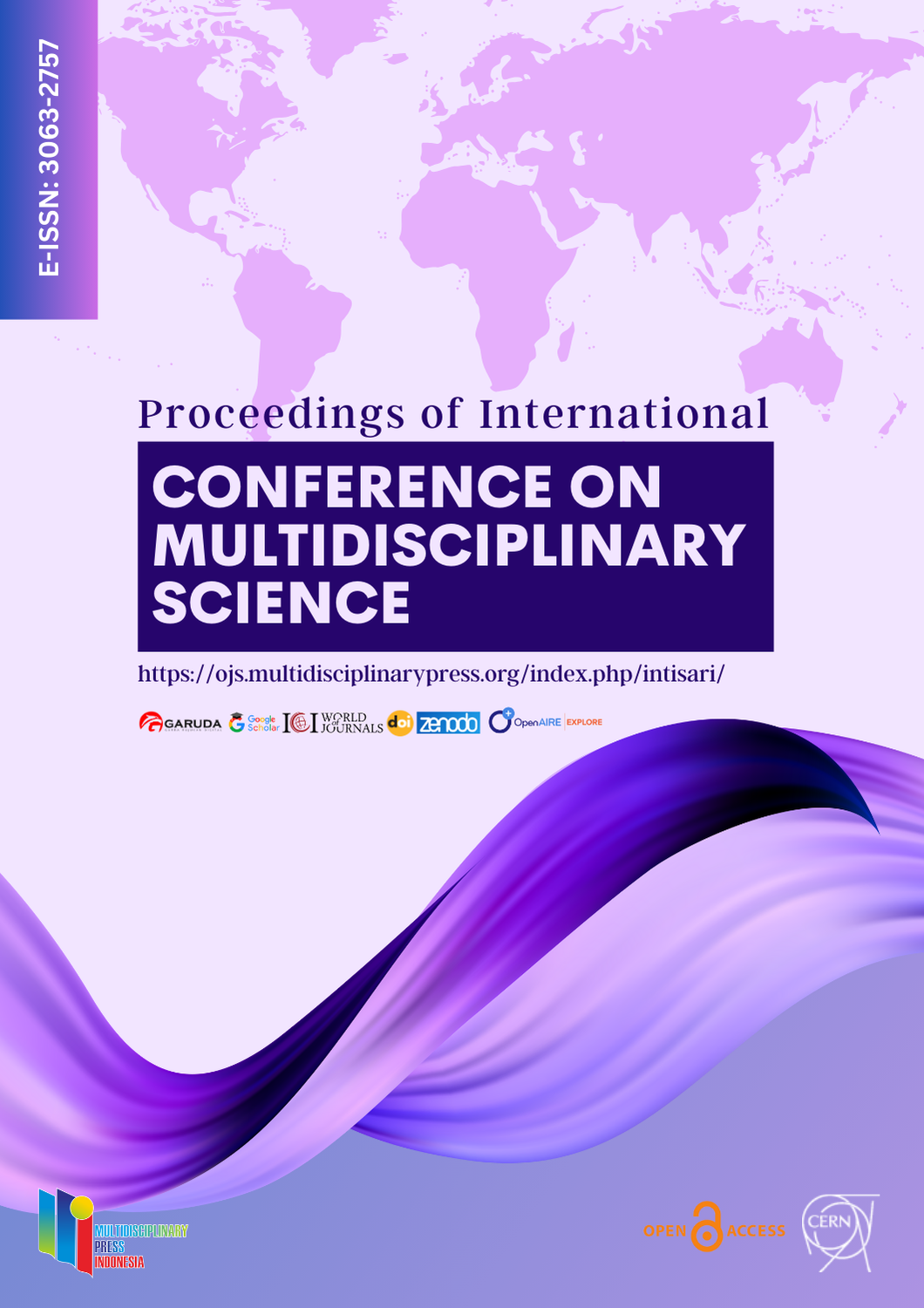Implementation of Work Quality in Improving Performance
Keywords:
Organizational Climate, Work Environment, Work Quality, Employee PerformanceAbstract
Humankind holds a very important position in any organization because humans play an important role in daily life activities, especially in the workplace environment. Humans are seen by God as the purest form of life because they have a personality that is different from other forms of life. Without human resources, a business cannot carry out its activities, so human resources are very important. The results of this research are as follows: Organizational climate has a positive and insignificant effect with an original sample value of 0.026 and ap value of 0.421. Organizational climate has a positive and significant effect on work quality with an original sample of 0.777 and ap value of 0.000. Work Quality has a positive and significant effect on Employee Performance with an original sample of 0.595 and ap value of 0.000. The work environment has a positive and significant effect on employee performance with an original sample value of 0.354 and ap value of 0.020. Work Environment has a positive and insignificant effect on Work Quality with an original sample value of 0.146 and ap value of 0.242. Organizational climate has a positive and significant effect on employee performance through work quality indirectly with an original sample value of 0.462 and ap value of 0.004. Work Environment has a positive and insignificant effect on Employee Performance through Work Quality indirectly with an original sample value of 0.087 and ap value of 0.242.
Downloads
References
Abdillah, W., & Hartono, J. (2016). Partial Least Square (PLS) Alternatif Structural Equation Modeling (SEM) dalam Penelitian Bisnis. Andi Offset.
Darmadi, D. (2020). Pengaruh Lingkungan Kerja dan Disiplin Kerja Terhadap Kinerja Karyawan Pada Indomaret Cabang Kelapa Dua Gading Serpong Kabupaten Tangerang. JIMF (Jurnal Ilmiah Manajemen Forkamma), 3(3), 240–247. https://doi.org/10.32493/frkm.v3i3.5140
Fachrezi, H., & Khair, H. (2020). Pengaruh Komunikasi, Motivasi dan Lingkungan Kerja Terhadap Kinerja Karyawan Pada PT. Angkasa Pura II (Persero) Kantor Cabang Kualanamu. Maneggio: Jurnal Ilmiah Magister Manajemen, 3(1), 107– 119. https://doi.org/10.30596/maneggio.v3i1.4834
Ghozali, Imam. (2015). “Aplikasi Analisis Multivariate Dengan Program SPSS”. Semarang: Badan Penerbit Universitas Diponegoro.
Ghozali, Imam dan Hengky Latan (2015). Partial Least Squares Konsep Teknik dan Aplikasi dengan Program Smart PLS 3.0. Semarang: Universitas Diponegoro Semarang.
Hanum, N. (2018). Pengaruh Pendapatan, Jumlah Tanggungan Keluarga dan Pendidikan Terhadap Pola Konsumsi Rumah Tangga Nelayan di Desa Seuneubok Rambong Aceh Timur. Jurnal Samudra Ekonomika, 2(1), 75- 84.
Hasmalawati, (2018.) Pengaruh Kualitas Kehidupan Kerja dan Motivasi Kerjaterhadap Kinerja Karyawan, Jurnal Psikologi Ilmiah, Vol. 3, No. 2, 1-9.
Rahardja,Edy & Nurul,C. R., (2019), Pengaruh Kualitas Kehidupan Kerja, Motivasi Kerja dan Kepuasan Kerja Terhadap Kinerja Karywan (Studi pada PT. Djarum Kudus), Diponegoro Journal Of Management, Volume 8, hal. 128-137.
Setiawan. (2015). Pengaruh Motivasi Kerja Terhadap Kinerja Karyawan Level Pelaksana di Divisi Operasi PT. Pusri Palembang. PSIKIS-Jurnal Psikologi Islami Vol. 1 No. 2 (2015) 43-53.
Sugiyono, (2017). Metode Penelitian Kuantitatif, Kualitatif, dan R&D. Bandung: CV. Alfabeta.
Ukkas Dan Dirham Latif, (2017). Pengaruh Iklim Organisasi Dan Komitmen Organisasi Terhadap Organizational Citizenship Behavior (Ocb). Jurnal Equilibrium. ISSN 2089-2152. Vol. 06 No. 01 Februari .
Veithzal Rivai Zainal, S. (2015). Manajemen Sumber Daya Manusia Untuk Perusahaan . Edisike-7. Depok: PT RAJAGRAFINDO.
Downloads
Published
How to Cite
Issue
Section
Categories
License
Copyright (c) 2024 Handoko Utama, Mesra B

This work is licensed under a Creative Commons Attribution 4.0 International License.





